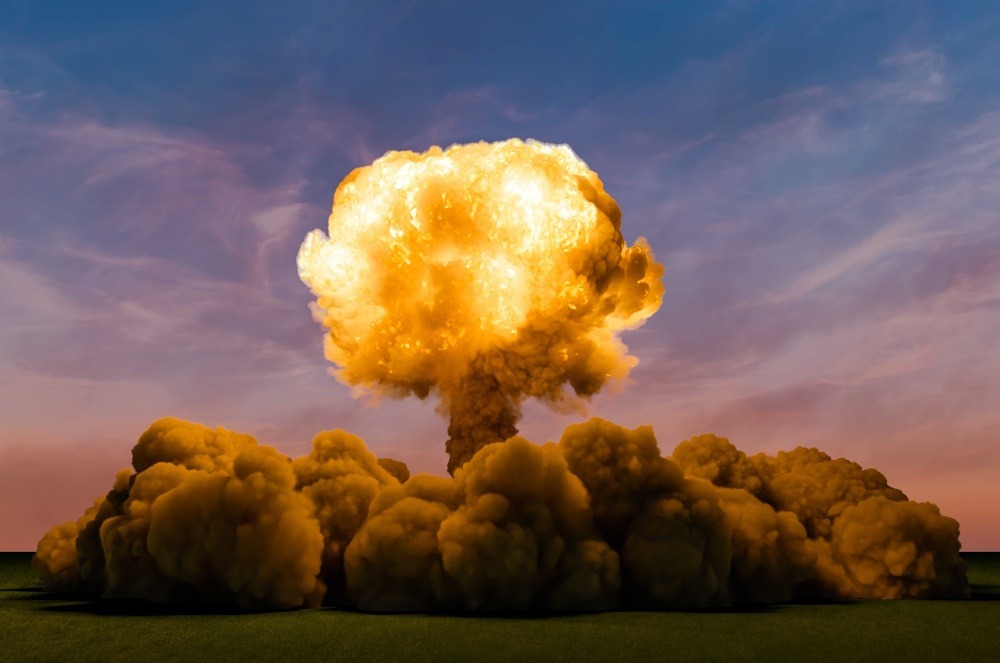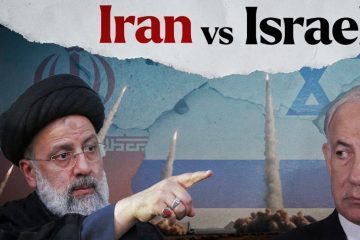Do We Really Need Nuclear Weapons? The Unthinkable Is Being Debated in Germany

Germany is starting to ask a formerly unimaginable question: Does it really need its own nuclear weapons? This is in response to growing concerns about Russian expansionism and the United States’ possible withdrawal from Europe.
German authorities have recently asked the two nuclear powers in Europe, France and the United Kingdom, to collaborate with Berlin in creating a backup strategy for nuclear deterrence inside the North Atlantic Treaty Organization (NATO) in the event that the United States is no longer prepared to play that role.
Going a step further, some German lawmakers and scholars are wondering if the country will ever require its own nuclear weapons program.
As some long-standing nuclear countries increase their stockpiles, new members join the atomic club, and others, like Iran, seem to be moving in that direction, officials in more than just Germany are considering the ramifications of proliferation.
Particularly contentious is the issue in Germany, a pacifist nation that has rejected nuclear power and the atomic weapon since its loss in WWII.
Earlier this month, the topic became public knowledge when Christian Lindner, the finance minister, responded to remarks made by U.S. presidential candidate Donald Trump suggesting that, if re-elected, Washington would not provide military aid to NATO members who were underfunding their defense.
Lindner posed the following question in an essay published in the Frankfurter Allgemeine Zeitung: “Under what kind of monetary and political circumstances would the governments of France and Britain be prepared to keep and increase their respective strategic capabilities to ensure our common safety?” Furthermore, to what extent are we prepared to make a contribution?
Katarina Barley, a candidate for the center-left SPD in the European election, and Friedrich Merz, head of Germany’s biggest opposition party, the conservative CDU, have both said that Germany should pursue a European nuclear deterrent separate from the United States.
Chancellor Olaf Scholz, Foreign Minister Annalena Baerbock, and Defense Minister Boris Pistorius are reportedly still doubtful about the benefits and feasibility of further nuclear cooperation with France and the United Kingdom.
Relying on the present nuclear deterrent strategy of the North Atlantic Treaty Organization and investing substantially in better air defense systems is the appropriate response for now, according to these top officials. They share the opinion that the potential nuclear danger from Russia has escalated.
What has changed in Berlin since French President Emmanuel Macron first approached Germany and other European nations four years ago with an invitation to discuss how Paris may expand its nuclear umbrella to include all of NATO in return for financial assistance with the purchase of nuclear weapons.
Although Germany does not own nuclear weapons, German jets are prepared to launch American nuclear warheads stationed in Germany as part of NATO’s nuclear-sharing agreements. It would be up to the United States alone to decide whether or not to use the weapons.
Germany has long maintained that the United States should be the primary target of NATO’s nuclear deterrent. The country is afraid that if France were to include Germany in its nuclear umbrella, it would lead the United States to withdraw its forces from Europe.
German officials claim their nation is more defenseless than France or the United Kingdom in light of Trump’s doubts about NATO’s basic principle that an assault on one member is an attack on all. Regardless of Trump’s reelection, there are many who worry the United States will withdraw its support from Europe.
Some, like Lindner, believe that Germany should end its nuclear taboo immediately. They are concerned that President Putin of Russia, bolstered by progress in Ukraine and Trump’s remarks, may soon put the alliance to the test, maybe by attacking one of its member states that shares a border with Russia.
Germany and France have not discussed the possibility of extending France’s nuclear umbrella, according to a French official. U.K. Defense Ministry spokesman: “All NATO Allies benefit from the protection it provides. We have declared our independent nuclear deterrent to the defense of NATO for over 60 years.”
Germany should propose buying some 1,000 strategic nuclear bombs that are now inactive from the United States, says prominent German political scientist Maximilian Terhalle.
When added to the arsenals of France and the United Kingdom, these weapons would bring the total number of warheads to about 1,550, which is significantly more than what both countries have at the moment. There is a predetermined strategy for the deployment of that force across NATO territory in the event of an attack by Russia.
It won’t matter whether you have fifteen divisions and state-of-the-art battle tanks if you can’t dissuade an adversary with nuclear weapons, according to Terhalle. This is especially true if the enemy possesses nuclear weapons and is prepared to threaten you with them.
When questioned about Terhalle’s remarks, a high-ranking German official stated that the country’s nuclear weapons are not being examined at the moment. However, he did concede that Berlin may need to credibly discourage an aggressive Russia in the future.
The official stated that depending on other European powers was not much different from depending on the United States. He also pointed out that France could be “one election away” from having a pro-Russian president, referring to the far-right Rassemblement National, which is presently leading in the polls.
A number of Lindner’s detractors share Terhalle’s view that NATO’s nuclear deterrent could not be credible if Germany did not take part in its development, deployment, and decision-making processes with other NATO member states.
They argue that the United States’ commitment to protecting the alliance would be undermined and that achieving such a goal would be futile since it would waste resources that Germany does not have.
“The one we have is the best deterrent,” stated Norbert Röttgen, a conservative politician from Germany’s opposition and a former head of the foreign affairs committee. “It would take fifteen years and countless billions of euros to build our own nuclear weapon.”
There has been strong opposition to Lindner’s work. The current nuclear arrangements are a strong deterrence, and nothing should be done to compromise their credibility, according to NATO Secretary-General Jens Stoltenberg, who was asked about his suggestion last week.
Obtaining nuclear weapons poses significant political, practical, and legal challenges for Germany. In the September 1990 agreement that allowed Germany to be reunited, Berlin reiterated its pledge to renounce nuclear weapons, as it had already done under the Treaty on the Non-Proliferation of Nuclear Weapons.
Even without nuclear weapons of their own, Germany and Europe will need to quickly increase their defense spending. In response to what they saw as an increasing Russian threat, Scholz, Macron, and newly elected Polish prime minister Donald Tusk all pushed for closer security relations during Tusk’s recent visits to Paris and Berlin.
An economic, scientific, and civilizational power, as well as a military one, should be the goal of the European Union, according to Tusk.
This essay was authored by Max Colchester from London and Stacy Meichtry from Paris.










